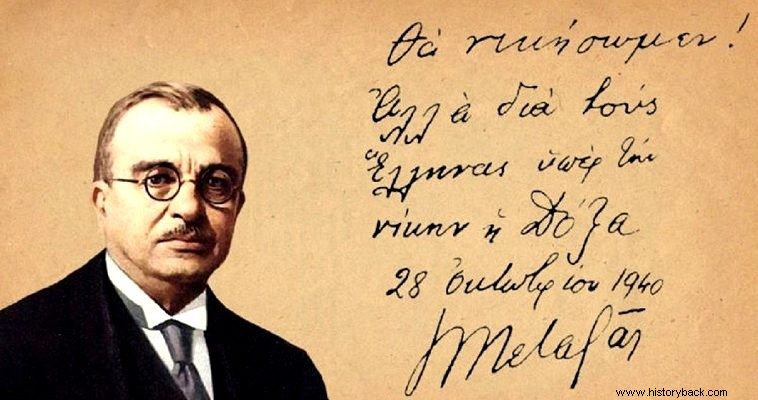
Shortly after 03:00 in the morning of October 28, 1940, the then Italian government sent an ultimatum to Greece, through the Italian ambassador in Athens, Emanuele Grazzi, who personally delivered it to Ioannis Metaxas at his home in Kifissia and with which he demanded the free passage of the Italian army from the Greek-Albanian border in order to then occupy some strategic points of the Kingdom of Greece.
After reading the text Metaxas replied to the Italian ambassador in French (official diplomatic language) the historic phrase:"Alors, c'est la guerre", (Well, that means war), thus expressing the negative position on the Italian requests.
At 05:30 in the morning, the Greco-Italian war began with the surprise invasion (the ultimatum stipulated that the attack would begin at 6 am) of Italian troops in Epirus, so Greece entered the war on the defensive. The so-called "Epic of Saranda", which followed, and the great victories won by the Greek army against the Italians, were established to be celebrated every year on October 28, the day of the delivery of the Italian ultimatum and the refusal of Ioannis Metaxas to consent .
Every year on this day, the official celebration takes place in Thessaloniki, in the presence of the President of the Republic and other officials, with a large military parade. Student parades take place in Athens and other cities, while public and private buildings raise the Greek flag.
The anniversary of "NO" was celebrated for the first time during the years of the Occupation. The first celebration took place in the central building and in the courtyard of the University of Athens on October 28, 1941. On the second anniversary (October 28, 1942), the celebration took place in Syntagma Square at the initiative of the EPON and PEAN organizations. For the first time the anniversary was celebrated officially on October 28, 1944 with a parade before Prime Minister Georgios Papandreou. The Church of Greece decided in 1952 to move the feast of Agia Skepi from October 1st to October 28th, on the grounds that the Virgin Mary helped the Greek Army in the Albanian war.
SOURCE:APE-ME
